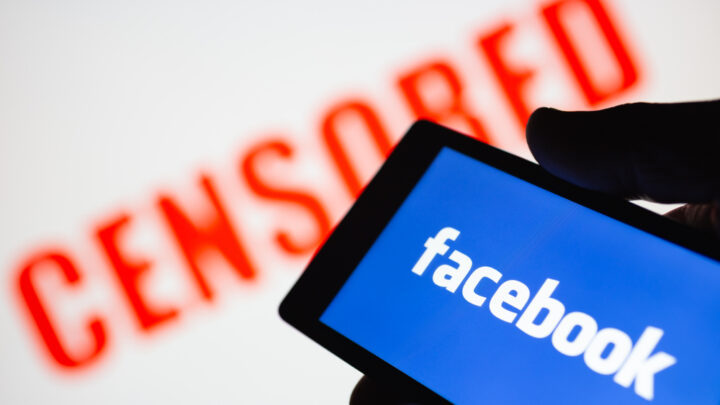BY STAFF CORRESPONDENTS
SAN FRANCISCO — Russian President Vladimir Putin continues to demonstrate a real fear of rising opposition forces, fueled by Western social media platforms. On March 10, the Russian government announced it would be slowing down speeds on Twitter as part of a larger effort to crackdown on opposition within the country and impose sweeping national censorship. Russian authorities have increasingly attempted to intimidate social media platforms with warnings, fines and threats of blockage as they begin to mimic the oppressive internet initiatives under the Chinese government.
The censoring of Twitter comes as a result of the Russian government arguing that social media platforms have played a major role in encouraging dissent nationwide. Alexei Navalny, the de facto head of the opposition movement in Russia, has used platforms like YouTube and Twitter to promote his anti-corruption agenda. Using the internet and other digital means has enabled Navalny to produce viral videos, including his documentary on Putin’s alleged palace, which has reached over a hundred million views on Youtube.
Since Navalny’s most recent detainment and subsequent imprisonment in February, Russian citizens have been outraged, flooding into the streets to fight for Navalny and against the greater government corruption in the country. Navalny’s two-year sentence in Russia’s colony number two is at a correctional colony in Pokrov. Although Russia describes the facility as their average prison, in reality, Pokrov is considered the maximum level of imprisonment and an institution known for isolating its prisoners and destroying them psychologically. Navalny is one of several Russian political activists that have been imprisoned at this corrective colony.
Due to Navalny’s success on platforms like YouTube, the Russian government has enacted greater measures to silence western social media platforms. Roskomnadzor, Russia’s federal executive body in charge of supervising media and mass communications, began the slowdown of Twitter in order to tighten the control of social media platforms following Navalny’s internet success. In February, Putin advocated for officials to monitor said platforms more closely, arguing they encourage children to participate in unsanctioned and illegal opposition protests.
However, these attempts at censorship date back to 2012, when a law was implemented allowing the government to block or blacklist online content it deemed inappropriate. Since then, the Russian government has only increased its level of censorship.
In 2014, the Russian State Duma passed a law requiring the personal data of Russian users to be stored on Russian servers. The government has continuously fined apps like Facebook and Twitter for their lack of action but have failed to ban either platform, possibly to avoid further public resentment. The Russian government successfully blocked LinkedIn in 2016, both because of its unpopularity in Russia and the company’s failure to adhere to Russian user data guidelines.
During the Crimean crisis, Russian authorities banned Alexei Navalny’s blog and Kasparov.ru, owned by Garry Kasparov, a chess grandmaster and World Chess Champion, known for its condemnation of Vladimir Putin. Roskomnadzor often blocks specific Facebook or Wikipedia pages and blogs, like a 2014 Facebook page protesting the prosecution of Alexei Navalny for inciting violence or “unsanctioned mass protest”.
In April 2018, Roskomnadzor banned Telegram for its refusal to grant the Federal Security Service access to encryption keys, but lifted the ban in 2020 due to its ineffectiveness and particularly Telegram’s ability to work around the limitation.
In December 2020, the Russian government implemented a new bill for anyone defaming the government online and sentencing them to jail for up to two years. Another bill signed into law that same day bans online discussions of law enforcement officials and judges’ personal information or property ownership. In doing so, the government is able to silence any allegations of corruption on part of officials.
The Russian government passed a new law in January 2021, that fines companies annual revenue by 10% if they fail to block illegal activity. One example of “illegal activity” is rallying the youth to participate in unsanctioned protests. In January, the government threatened and then proceeded to fine social media platforms like Facebook, Instagram, Twitter, TikTok and Vkontakte, a Russianowned social media platform, for allegedly promoting protests to minors. On January 28, Putin announced that he has given the government until the first of August to create more thorough rules for foreign tech companies choosing to work in Russia. Additionally, he is requiring those same companies to open offices in the country.
Even though Russian officials have been mostly ineffective in definitively censoring popular social media platforms like Reddit, YouTube and others, their authority over television gives them lasting control. Television, Russia’s most popular medium for entertainment and information, is government-controlled. Nearly 74% of the Russian population watches national television channels. Of the three main nationwide news broadcasters in Russia, Channel One and Russia TV are government owned, while the third, NTV is owned by the state-controlled natural gas-giant Gazprom. The majority of the population that indulges in Russian news is thus fed government-propagated information rather than unbiased news. Due to television being predominantly in the hands of the government, social media has become an even greater outlet for younger generations to engage in critical debate.
For years, Roskomnadzor and the Russian government have been building an infrastructure to minimize the freedom of speech online. Many have argued that this push for censorship is akin to China’s government monitored internet. However, the main difference is that China’s censorship was embedded from the beginning of the internet’s expansion. As a result, the distinction between China’s government propaganda and its internet are blurred. The Chinese government strategically blocked potentially unsettling information regarding COVID-19 and any negative coverage on China’s handling of the virus. But, their censorship goes deeper than just blocking unwelcome information and rather uses specialized technology to create false, alternative narratives to controversial issues. In Russia, digital entrepreneurship was encouraged until the anti-government protests in 2011 and 2012, making it significantly more difficult for Russian officials to censor the free-internet in the same way as China. Although both regimes are similar in their oppressive tactics, Russia’s late entrance into the sphere of censored internet puts them at a significant disadvantage as social media companies have built an infrastructure to fight against government bans.
But, Russian officials have been hinting at a “sovereign RuNet”, a platform designed to tie Russian citizens to the internet regardless of if they were to disconnect from the World Wide Web. The purpose, the government argues, is to block Western observers and intruders from cutting Russia’s communication link; yet, many activists believe this Russian controlled internet would allow for more censored content that is directly cut off from the external world.
Rather than directly force its citizens to join, officials are attempting to coax Russian social media users to switch platforms from Western apps to Russian social networks like VKontakte. Vkontakte, along with the Chinese-owned platform TikTok, have previously agreed to ban certain content that may encourage protesting in Russia. Vkontakte is known to be linked to the Russian government.
In order to further their government-controlled internet bubble, Gazprom Media has committed to creating a video platform called RuTube in order to potentially replace Youtube. On top of that, the corporation also bought rights to “Ya Molodets”, an app that strives to resemble or, even better, replace TikTok.
The purpose of Russia’s government-run array of social media platforms isn’t only to better censor Western media content, but also to destroy the potential of viral videos that the Kremlin believes could promote dissent. That way, the government is better prepared for another Navalny figure who has the potential of encouraging younger audiences to revolt. Although they can’t directly replicate China’s successful government-censored social media platforms, they can and are trying to smear and suppress the platforms that go against their regime.
Overall, this begs the question of whether or not Russia’s strategy for censorship will be effective in the long-term. Even though China has successfully incorporated their oppressive political tactics into their citizens’ everyday lives and thus acts as an example, Russia is unable to double-down in the same way due to their lack of control over free speech on the internet. Jailing or eliminating opposition leaders and troublemakers as a means of censorship is nothing new.
Yet, Putin is beginning to demonstrate a real fear that opposition is spurred on by the free internet. Russia’s inability to tackle Silicon Valley’s influence in its country could create a serious obstacle for their regime in the near future. However, Putin has curtailed similar mass protests before, like the 2011 protests, showing that Navalny might not be as real of a threat as the western media paints him to be. Navalny’s prior commitments to nationalist groups, his history of making xenophobic and controversial videos, along with his constantly fluctuating views on economic and social issues have caused Russian citizens and Western observers alike to be skeptical of a Navalny Russia. But, even if Navalny’s success as the de facto leader of the opposition is unsuccessful in dismantling Putin’s regime, the Kremlin’s lack of control over the free internet could pose significant problems for their future political success.







